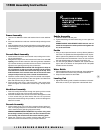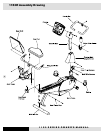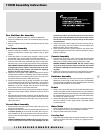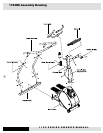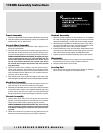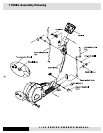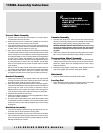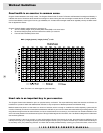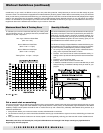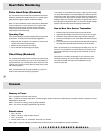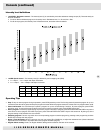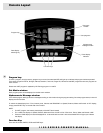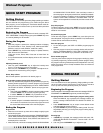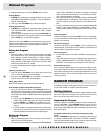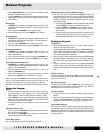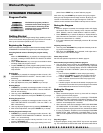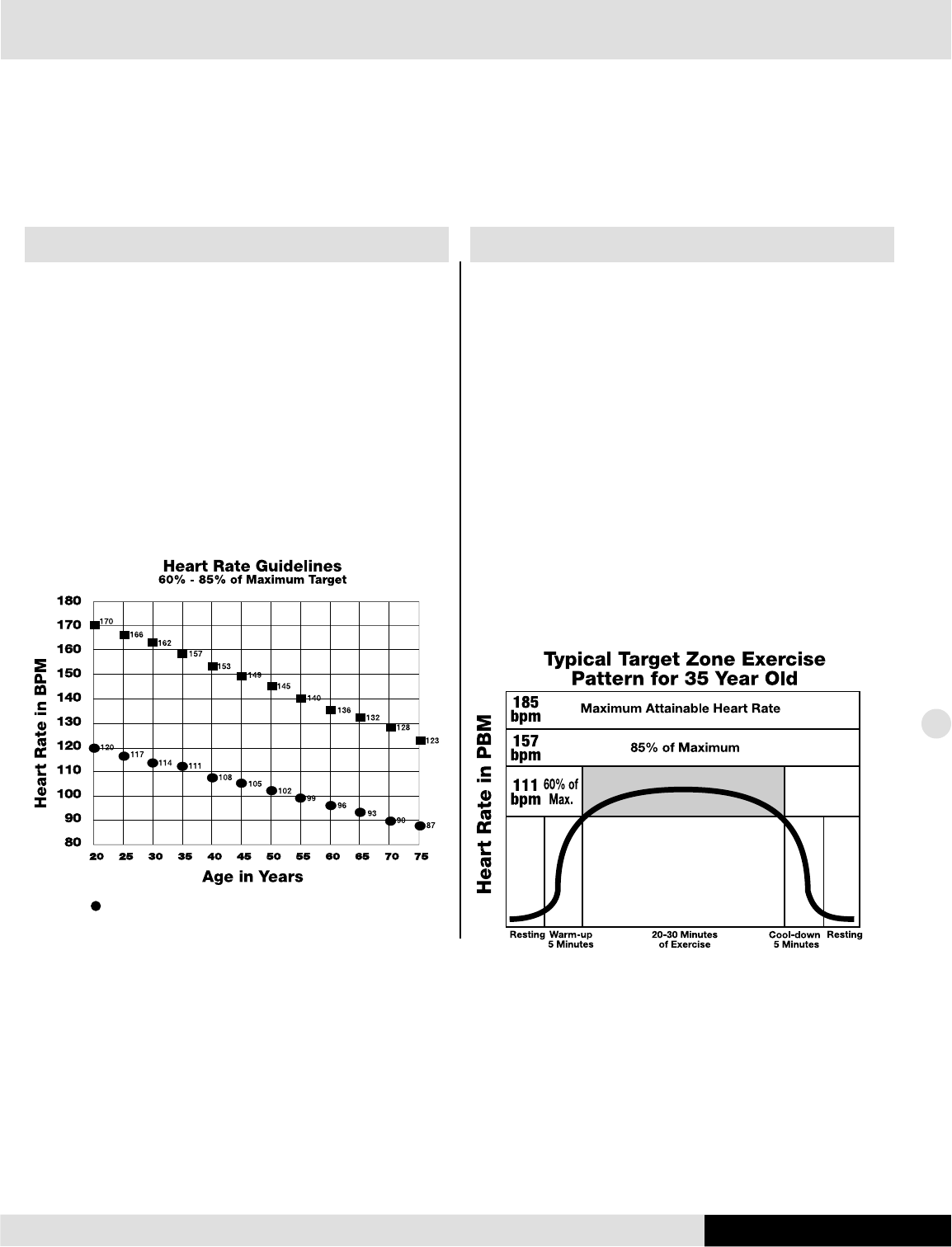
13
1 1 5 0 S E R I E S O W N E R’ S M A N U A L
= 85% = 60%
carotid artery on your neck. It is difficult to count your own pulse during exercise, mainly because you cannot count fast enough to get an
accurate number. The 1150 Series is equipped with a wireless telemetry receiving system. What it does is automatically count your heart rate
while you are wearing a heart rate chest belt during your exercising period. Heart rate is monitored and electronically displayed as a digital
readout. Your target heart rate, the intensity needed to improve cardiovascular fitness, depends primarily on your age and not your state of
fitness. It is calculated as a percentage of your maximum heart rate, estimated as 220 minus your age. It is most effective to train at your
target heart rate which is between 60% and 85% of your maximum heart rate.
Workout Guidelines (continued)
Maximum Heart Rate & Training Zone
To calculate your maximum heart rate and find your training zone,
use the following formula. An example has been provided below
based on a 35-year –old person:
220 – Age = Maximum Heart Rate
(220 – 35 = 185)
60% of Maximum Heart Rate
(60% x 185 = 111 bpm)
85% of Maximum Heart Rate
(85% x 185 = 157 bpm)
Training Zone: 111 bpm – 157 bpm
It is recommended that you accumulate at lease 30 minutes of physi-
cal activity most days of the week. Physical activity should be initi-
ated slowly and the intensity should be increased gradually. You
should select activities that you enjoy and can fit into your daily life.
Having Diamondback equipment at home certainly gives you the
comfortable and convenient workout you want.
The American College of Sports Medicine makes the following rec-
ommendations for the quantity and quality of training for develop-
ing and maintaining cardiorespiratory fitness in healthy adults:
• An activity that uses large muscle groups, maintained continu-
ously, and is rhythmical and aerobic in nature.
• Duration: 20 to 60 minutes of continuous aerobic activity, in-
cluding a warm-up and cool-down period for each exercise ses-
sion.
• Frequency: 3 to 5 times per week.
• Intensity: 60% to 85% of maximum heart rate.
• In addition to aerobic exercise, it is recommended that you add
strength training of moderate intensity twice per week to your
program.
Quantity & Quality
Get a smart start on exercising.
Anyone over the age of 35, as well as younger persons whom are overweight, should check with his/her physician before beginning any type
of exercise program. People who have diabetes or high blood pressure, a family history of heart disease, high cholesterol or have lead a
sedentary lifestyle should protect themselves with a medical check-up and a stress test, preferably administered during exercise by a
healthcare professional.
1. Always stretch before your workout to loosen muscles, and afterwards to cool down.
2. The first few minutes of your workout should be devoted to warming up muscles before a vigorous workout, and building your heart rate
slowly.
3. After your aerobic workout of about 24-32 minutes, spend 10 minutes gradually reducing your heart rate with a lower resistance level.
Remember, start slow, with intensity low, until you build endurance and strength. And always consult your physician before
beginning any exercise program.



